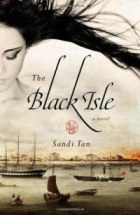Alright, so the three industries aren't really dead yet - just in shambles, thanks largely to the technology that enabled me to post this. But they'll pick themselves up, hopefully, and live on.
Apologies to Justin Cronin and Karl Lagerfeld for any offence caused. The mental cues just ... leapt in there.
Splendour from ruin
Even broken lives can be beautiful, as this darkly funny novel suggestsfirst published in The Star, 04 November 2012
Why do KL drivers slow down to stare at multi-vehicle pile-ups? Could there be something ... beautiful about them? Considering the things that pass for sculptures of modern art, perhaps. But such morbid beauty isn't just found in mangled metal.

In 1962, Porto Vergogna (literally, "port of shame") is a dying Italian fishing town and home to young Pasquale Tursi, keeper of the oddly named Hotel Adequate View. Tursi's daydreams of building tennis courts are interrupted by the arrival of Dee Moray, an American starlet who was supposed to be in Liz Taylor's Cleopatra. It's not long before Tursi starts thinking about a different kind of "love". However, stuff happens and, one day, she vanishes.
In the present day, several people are failing in their romances and careers. Claire Silver, assistant to film producer Michael Deane, is disappointed with her porn-addict boyfriend and the box office bombs her boss made. Shane Wheeler's dreams of being a writer also bombed, along with his marriage and finances. Across the pond, Pat Bender's latest music-comedy act goes belly-up, ending his rock star ambitions.
Hoping for a break, Wheeler pitches a story to Deane, so he's off to meet his assistant, Silver. Wheeler's knowledge of Italian helps when an elderly Italian man, a now-aged Tursi, shows up with one of Deane's old business cards – and a story that moves Wheeler, Silver and Deane to help him.
There's a tingling sense of anticipation that's maintained throughout the novel, the promise of a spectacular collision that only happens during a rare alignment of some major cosmic bodies.
The third-person narrative is mostly the spilling of the characters' thoughts. The jumps in the timeline, punctuated with excerpts from several characters' manuscripts or screenplays, can be initially hard to follow but the dark, often vulgar comedy helps.
Another compelling aspect about Walter's novel is that its backdrop can be considered "beautiful ruins" as well: the film, book and music industries, as represented by the principal characters. Gawk and maybe chuckle at the references to trashy reality TV shows, bad movie ideas and English professors who write popular horror fiction (makes one think of Justin Cronin). Although their worlds are crumbling, the protagonists manage to cling on, just in time for Tursi's arrival. In helping the old Italian find a missing piece of his past, their hope is rekindled.
What one feels about this book is captured by Wheeler's reaction to the present-day Deane, a "lacquered elf" whose obsession for eternal youth has given a 72-year-old man the face of a "nine-year-old Filipino girl" (makes one think of Karl Lagerfeld). "Try not to stare," Silver advises Wheeler.
Like Wheeler, you'll fail. You can't help it. Even if you have almost no idea what's going on, there's no way you can take your eyes off Walter's ruined lives as they converge and finally crash into each other. I don't really fancy how some loose ends are tied up, but at least it rules out a sequel if they decide to bring it to the silver screen.
"Go read this now" would not suffice. The splendour of Beautiful Ruins, like the pyramids and temples of Ancient Egypt, must be personally witnessed to be understood. You will not be able to look away. Be awed at the chaos and brilliance of his work, and be moved by a story of optimism and a decades-old love.
Beautiful Ruins
Jess WalterHarper (2012)
337 pages
Fiction
ISBN: 978-0-06-220713-5
Categories:
Book Reviews,
The Star



